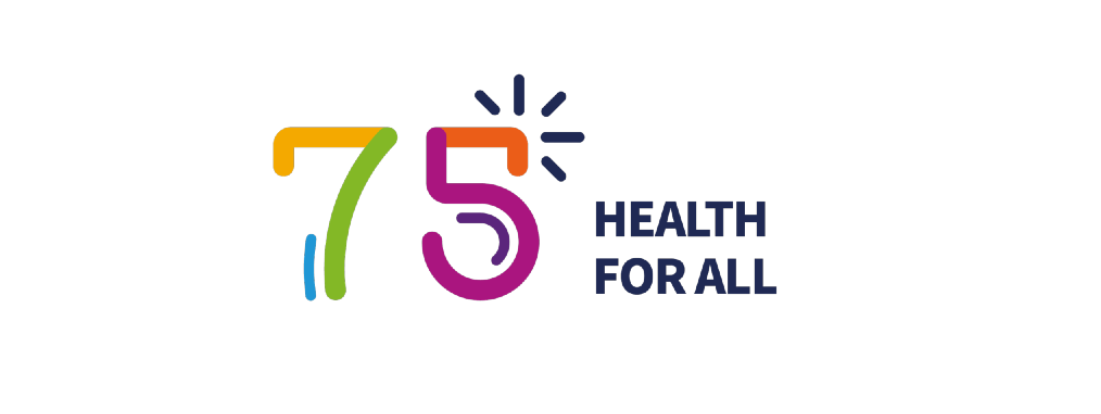"Health for All: Everyone, Everywhere", World Health Day 2019
The Theme of the World Health Day 2019 was "Health for All: Everyone, Everywhere."

Half the world’s population is still unable to obtain the essential health services they need. Universal Health Coverage is about changing this and ensuring equitable access to health services for all, without people experiencing financial hardship as a result.
This is central to building healthy societies and economies and to achieving the Sustainable Development Goals. And it is not just about improving health services. It is about policies and action across many sectors. We need to address the broader determinants of health, including social, economic and environmental factors.
And we must invest in people. We need highly trained and skilled health workers who can educate and advocate for their patients. We need empowered individuals who know how to take care of their health and that of their families. And we need communities to have access to health care when and where they need it. We must also highlight the importance of mental health, so often stigmatized and forgotten.
Primary health care is the key to achieving these goals and universal health coverage. Last year’s Astana Declaration has paved the way for the world to prioritize the investments we need. Now it is time to implement the commitments made.
Health is a human right. Political commitment and partnerships will be crucial in bringing it to life. Let us show the world that we are ready to bridge the gaps in health coverage worldwide and deliver health for all.
KEY MESSAGES
- Health is a human right; it’s time for health for all.
- We know universal health coverage is possible, let’s make it happen!
- Universal health coverage means that all people have access to the quality health services they need, when and where they need them, without financial hardship.
- At least half of the people in the world do not receive the health services they need.
- About 100 million people are pushed into extreme poverty each year because of out-of-pocket spending on health.
- But who are these people and how can we help them? To get a better picture of who is missing out, we need data that is broken down by gender, age, income, location, education and other factors that affect access to health services.
- Health is a human right; everyone should have the information and services they need to take care of their own health and the health of their families.
- Quality, accessible primary health care is the foundation for universal health coverage.
- Unsafe and low-quality health care ruins lives and costs the world trillions of dollars every year, we must do more to improve the quality and safety of health services globally.
- Primary health care should be the first level of contact with the health system, where individuals, families and communities receive most of their health care—from promotion and prevention to treatment, rehabilitation and palliative care—as close as possible to where they live and work.
- At its heart, primary health care is about caring for people and helping them improve their health or maintain their well-being, rather than just treating a single disease or condition.
- Primary health care covers the majority of your health needs throughout your life including services such as screening for health problems, vaccines, information on how to prevent disease, family planning, treatment for long- and short-term conditions, coordination with other levels of care, and rehabilitation.
- Primary health care is a cost-effective and equitable way of delivering health services and helping countries make progress towards universal health coverage.
- A health system with strong primary health care delivers better health outcomes, is cost-efficient and improves quality of care.
- Health workers have a crucial role to play educating patients on how to take care of their health, coordinating care and advocating for their patients’ needs to health facility managers and policy-makers.
- Primary health-care workers have a continuing and trusted relationship with their patients and know their health history; knowing the full picture helps improve their care and saves money.
Primary health-care workers know the traditions, cultures and practices of their communities, making them indispensable during an outbreak or emergency.
- To make health for all a reality, we need: individuals and communities who have access to high quality health services so that they take care of their own health and the health of their families; skilled health workers providing quality, people-centred care; and policy-makers committed to investing in primary health care.
PETITION: Sign the petition ''Health for All.''
CAMPAIGN: How you can get involved?
Time to be a health champion, Highlight the values of good health.
Time to link up with champion who care about getting health to all.
Time to give money to a group that helps advance the right to health.
Time to remind world leaders, Health is a human right.
Time to speak up about your health Needs, are they covered.
Time to talk about the best ways to get health services to all.










Comments
Post a Comment